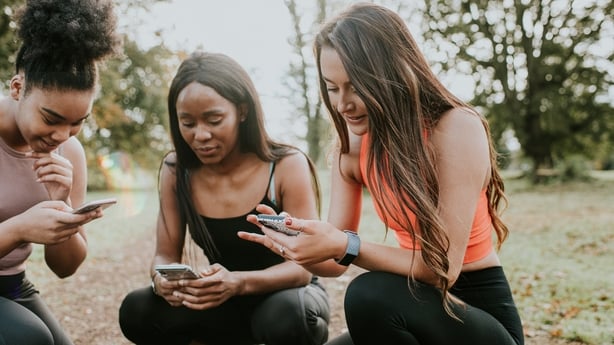Dr. Caroline West is a sex educator and host of the Glow West podcast, which focuses on sex, sexuality and the body. Here she writes about the pros and cons of online sex education.
Thanks to the internet, and specifically social media, there has never been a better time to explore your sexuality and find like-minded people.
From thirst traps and racy TikTok dances, to body positive tips for taking sexy photos and accessible conversations about polyamory and queer sex, the internet can be a safe and inspiring place to learn more about your sexuality.

Of course, this is often not as straightforward as some would like. Social media has exploded with sex educators using their platforms to spread awareness of consent, pleasure, and healthy relationships. However, not all education is good education.
As vital as it is, sex education is a field that is currently not regulated, so anyone can call themselves a sex educator and dispense advice. This means that some information is not accurate and, most of the time, it is not trauma-informed.
Sex and relationships are hotspots for people to be harmed, perpetuate harm, or do things they might not do if they were not experiencing trauma. Modern sex education takes an inclusive, trauma-informed course, and it can be dangerous to listen to advice that is not sound, especially when it's young people who are following this advice.
Sexual wellness should be placed on an equal footing with mental and physical wellness, so the sex experts you go to for advice should be qualified, vetted, educated, and experienced.
Sometimes the people who would be most qualified to talk about these topics are silenced online, making it even harder to find sound advice. While Instagram and TikTok allow some subtle sexualised content - and certainly allow the commercialism of the female body - they have also been accused of censoring sex workers, particularly sex workers of colour who have reported being locked out of their accounts or subjected to "shadow bans".
These bans make the account hard to find and therefore difficult for the account to maintain engagement or to be found by new potential followers. Adult performers such as Riley Reid are regularly removed from platforms such as Instagram, despite not posting explicit adult content.

Shawna Scott, owner of Ireland's leading body safe sex store sexsiopa.ie, negotiates this censorship while trying to keep her business account afloat on social media. She explains that different platforms have different levels of strictness, with TikTok taking a hardline approach to potential nudity or adult language.
She says that other platforms such as Instagram can be "stifling, as they can just stop your growth full stop if you fit into a category that they deem to be inappropriate. They will shrink your growth to the point where the platform becomes almost unusable for people who are in my industry".
Shawna also explains that adult content creators have created new language to try to evade negative attention from platform hosts. Terms such as ‘seggs’ ‘seggsual’ or ‘spicy’ are now used as euphemisms for sex; ‘seggs’ was chosen as it phonetically resembles ‘sex’ and is readable by screen readers used by those with disabilities. Others drop letters from words like sex (turning it into ‘s-x’) or use numbers or symbols, resulting in terms such as s€x.
For those who wish to use the internet to explore their desires, there are other online spaces for adults only that cater to specific tastes. For those who are interested in BDSM, Fetlife operates as a social network for who are into kink.
There, users can upload images, join groups, and find events in their local areas. However, the site is not a utopia and has been criticised for how it has dealt with people trying to share stories of abusive behaviour by fellow users on the site.

Social sites like this can offer users a way to find community, which is important for those who are into specific ways to express themselves and would like to meet like-minded people instead of worrying about explaining themselves to a person who may judge them.
Those who are interested in exploring different relationship styles such as polyamory also benefit from online spaces as they can talk to people also interested in the same lifestyle, instead of having to explain polyamory repeatedly to monogamous people. Thus, a dedicated online space offers respite and freedom.
Online spaces also offer a sense of being able to explore your desire and sexuality in a safe way. Many people live in areas where their true selves would not be accepted, or they live in isolated areas with no access to a community that meets their needs, for example an open queer community.
Before the internet these groups would communicate through personal ads, word of mouth, or taking a risk and being open with others. This method was obviously precarious, and the internet has made the process of finding alternative communities easier.
With community moderators, there is also an element of safety that may not have existed before. It’s not perfect, but online spaces do offer people a starting point to explore themselves and their sexual wellness.
- Written by Dr. Caroline West
The views expressed here are those of the author and do not represent or reflect the views of RTÉ.


